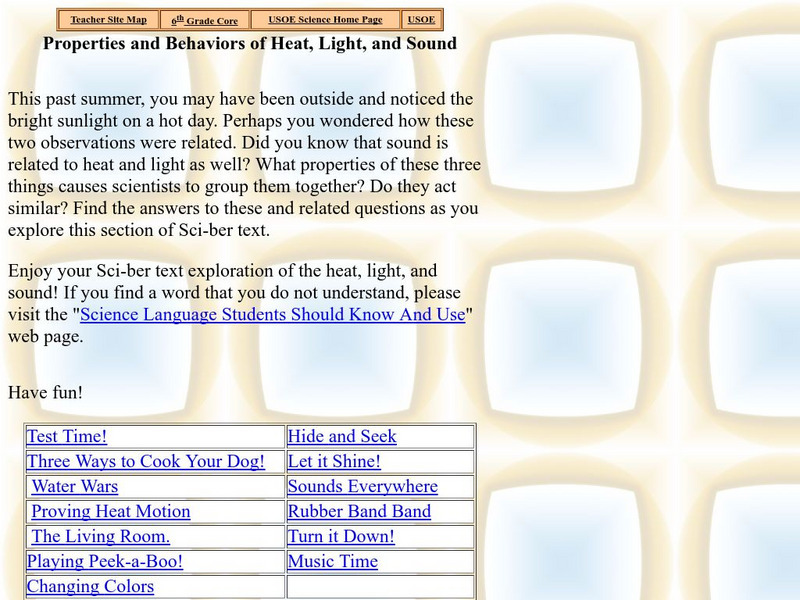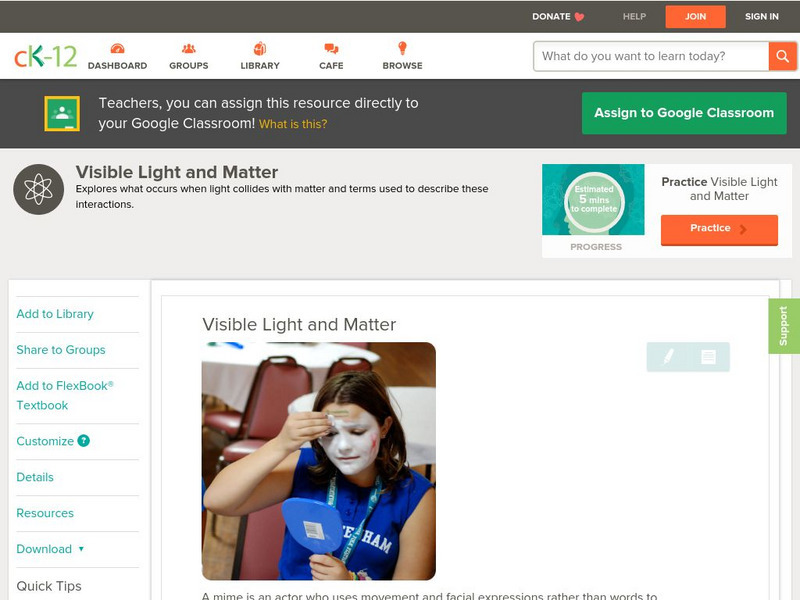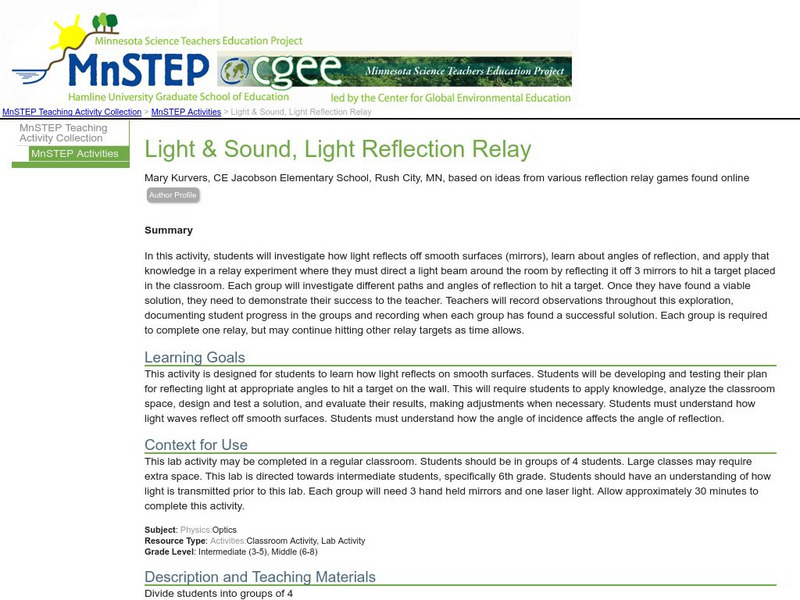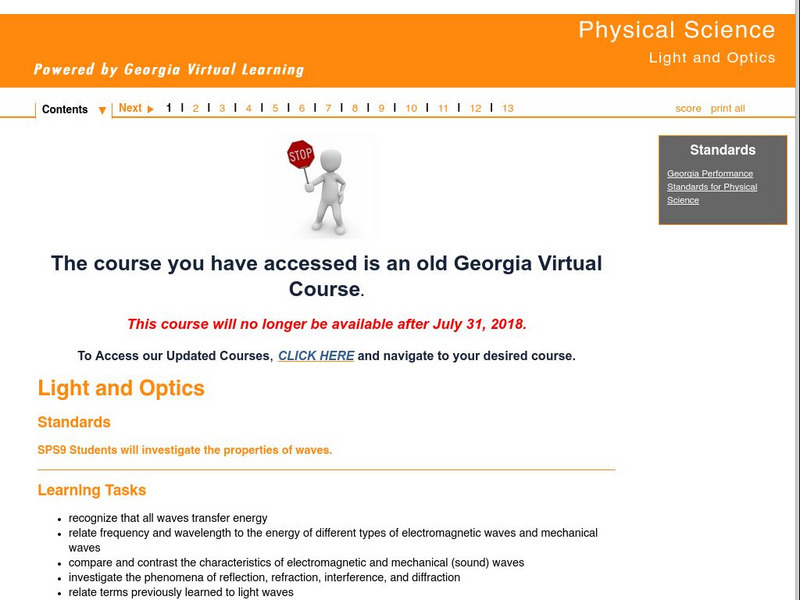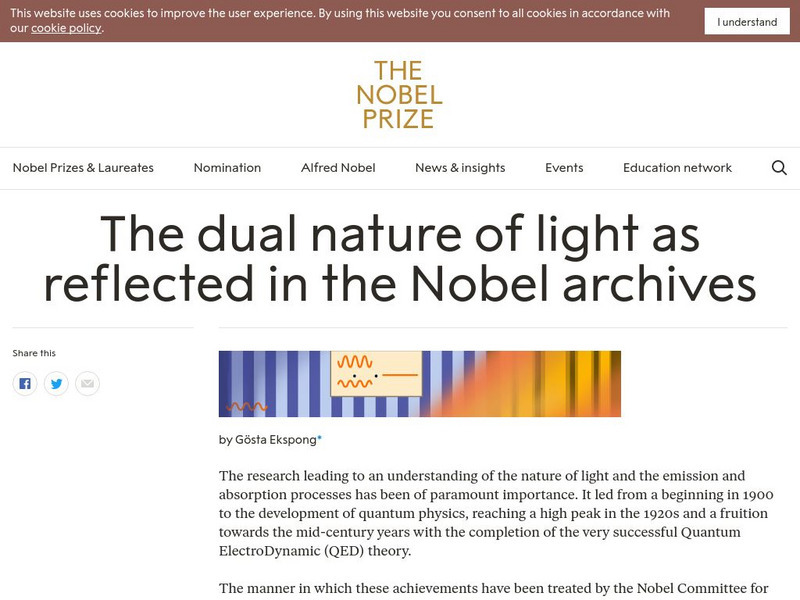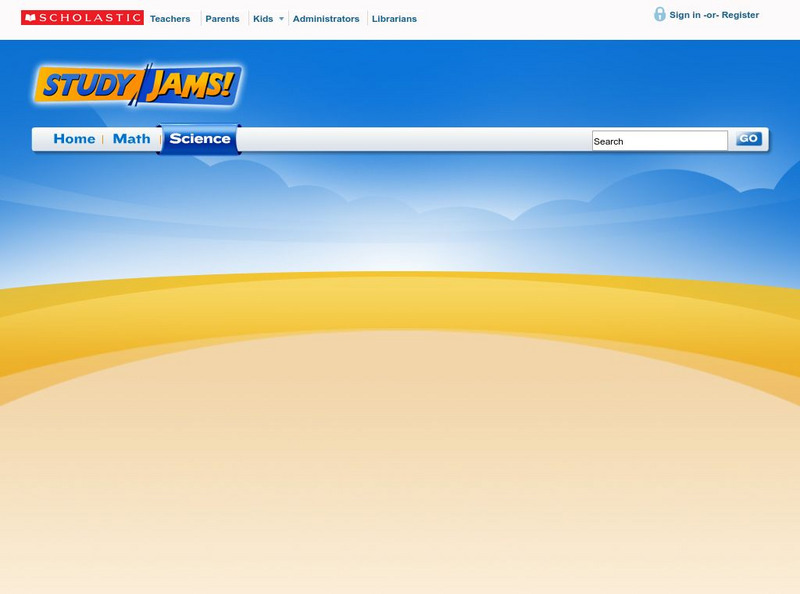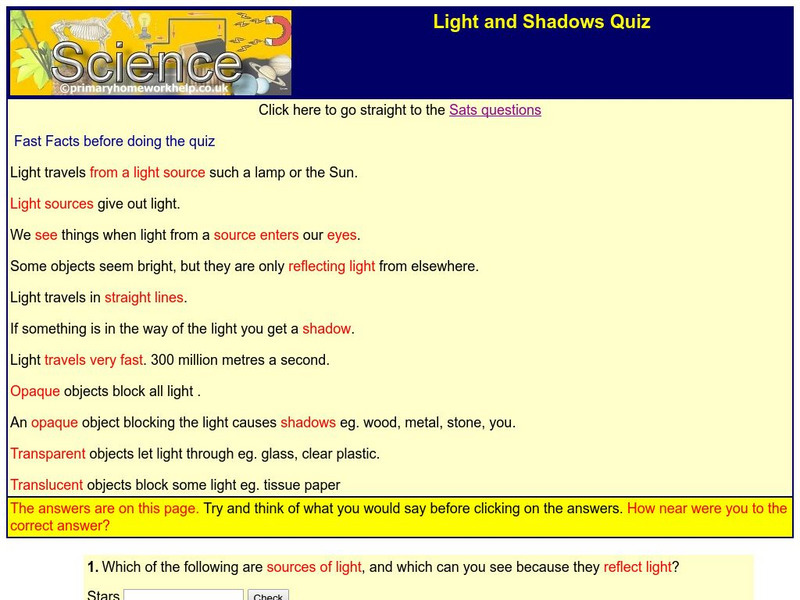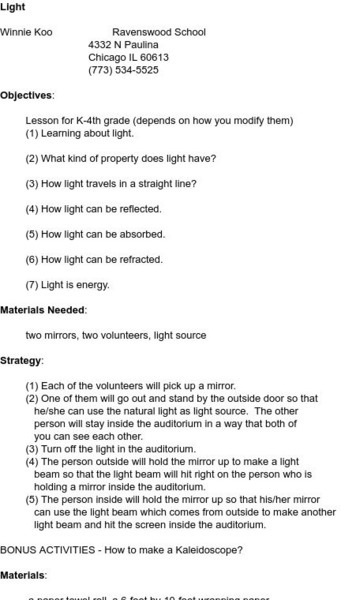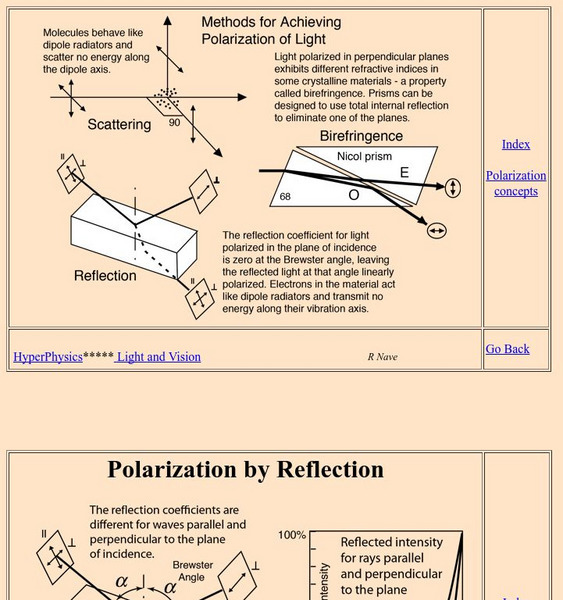Physics Classroom
The Physics Classroom: Light Waves and Color
The behavior of light waves is introduced and discussed. Also, polarization, color, diffraction, and interference are introduced and discussed thoroughly as supporting evidence of the wave nature of light.
Utah State Office of Education
Utah Science: Properties and Behaviors of Heat, Light and Sound
How can scientists lump heat, light and sound together when investigating properties and behaviors? This learning module will address that question through a series of activities.
TeachEngineering
Teach Engineering: Sound and Light
The Sound and Light unit provides students with an understanding of sound and light waves through the theme of the "Sunken Treasure," a continuous story line throughout the lessons. In Lessons 1-5, students learn about sound, and in...
Physics Classroom
The Physics Classroom: Light Waves and Color: Wavelike Behaviors of Light
In this series of interactive physics tutorials, students will focus on the wavelike nature of light.
CK-12 Foundation
Ck 12: Physical Science: Visible Light and Matter
[Free Registration/Login may be required to access all resource tools.] How visible light interacts with matter and classifying matter in terms of light.
BBC
Bbc: Gcse Bitesize: Why Do Scientists Think That Light and Sound Are Waves?
Light travels as transverse waves and can travel through a vacuum. Sound travels as longitudinal waves and needs to travel through a solid, liquid or gas. Read about the properties of light and of sound, and learn the differences between...
Science Education Resource Center at Carleton College
Serc: Light & Sound, Light Reflection Relay
For this exploration, students will investigate how light reflects off smooth surfaces, learn about angles of reflection, and apply that knowledge in a relay experiment.
Georgia Department of Education
Ga Virtual Learning: Physical Science: Light and Optics
Students will investigate the properties of light waves. They will learn about the different types of electromagnetic waves and mechanical waves, and investigate the phenomena of reflection, refraction, interference, and diffraction.
Nobel Media AB
The Nobel Prize: The Dual Nature of Light as Reflected in the Nobel Archives
This article discusses the historical figures who contributed to our understanding of the nature of light, x-rays, Quantum ElectroDynamic (QED) theory, and so on.
CK-12 Foundation
Ck 12: Physical Science: Law of Reflection
[Free Registration/Login may be required to access all resource tools.] Reflection and how it produces an image, regular and diffuse reflection and the law of reflection.
Scholastic
Scholastic: Study Jams! Science: Energy, Light and Sound: Light
A video and a short quiz on the basic concepts and vocabulary for understanding light energy.
Project Britain
Primary Homework Help: Light and Shadows Quiz
This resource provides information about light and shadows. In addition, there is a short quiz that can be taken.
BBC
Bbc: Gcse Bitesize: General Properties of Waves
Light travels as waves. Waves can be described by their amplitude, wavelength and frequency. The speed of a wave can be calculated from its frequency and wavelength.
TeachEngineering
Teach Engineering: Learning Light's Properties
Students learn the basic properties of light--the concepts of light absorption, transmission, reflection and refraction, as well as the behavior of light during interference. Lecture information briefly addresses the electromagnetic...
Science Education Resource Center at Carleton College
Serc: Investigating Light: A Form of Energy You Can See
Students will investigate how light is a form of energy that travels as waves away from the source. The basis for this lesson is taken from the Houghton Mifflin science curriculum. In the lesson experiments, students will predict if...
Other
Open School Bc: Sound and Light
The Sound and Light interactive investigates these two forms of energy. Students will enjoy exploring how sound and light are created, travel, and can be controlled.
Discovery Education
Discovery Education: Science of Everyday Life: Light and Shadow [Pdf]
In this lesson plan, students experience how light interacts with the environment by investigating relationships between shadows and light. Students will experiment with light by observing how light travels through materials and distances.
University of Minnesota
University of Minnesota: How Does Light Travel?
Contains a four step procedure to deriving the law of reflection using algebra, Fermat's principle, and calculus (simple derivatives). This is good for an in-class theoretical exercise.
Science and Mathematics Initiative for Learning Enhancement (SMILE)
Smile: Light (K 4)
This site provides two activities that learners can do in class. One uses mirrors to reflect light beams whole another is making a kaleidescope.
Georgia State University
Georgia State University: Hyper Physics: Methods of Polarization
At this college physics department site, the polarization of light is explained and illustrated as well as the primary methods of polarization (scattering, reflection, and refraction).
Georgia State University
Georgia State University: Hyper Physics: Crossed Polarizers
At this univeristy physics department site, the polarization of light is explained and illustrated. Methods for analyzing light to determine the degree of polarization are stated and explained with equations.
TeachEngineering
Teach Engineering: Beating the Motion Sensor
Lighting is responsible for nearly one-third of the electricity use in buildings. One of the best ways to conserve energy is to make sure the lights are turned off when no one is in a room. This process can be automated using motion...
University of Maryland
Optics Highlights: Optics, Electromagnetic Waves, Quanta
Part of an anecdotal history on optics and the study of light. Extremely thorough treatment of the scientific evidence which led scientists to believe in the particle nature of light. Includes a short biographical sketch and discusses...
ClassFlow
Class Flow: Introduction Lesson on Light
[Free Registration/Login Required] This flipchart is an introduction lesson on light. It explains absorption, transmission, and reflection. It contains real pictures that allow students to see how matter in an object determines how much...

